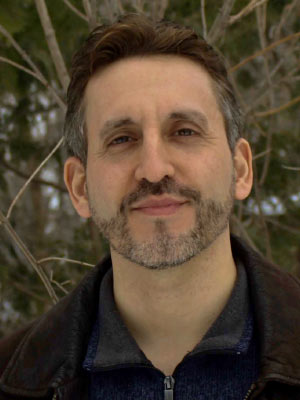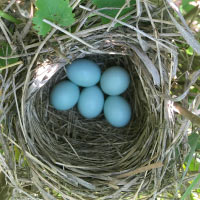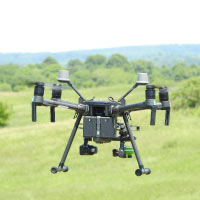
It promises to be an exciting year ahead for the Center for Ecology and the Environment (CEE). As the new director, I am thrilled to continue the important work of the CEE both on and off our campus. We are profoundly grateful for the dedication and leadership of our outgoing director, Sean Schoville, who provided exceptional leadership and guidance over the past few years.
In the upcoming year, we will shine a spotlight on several endeavors. First, we remain committed to maintaining our long-standing symposium series in the fall and spring, featuring keynote speakers, student poster presentations, and faculty lectures. Personally, I have always cherished this event as an opportunity to reconnect with former colleagues and welcome new ecologists to our campus.
Additionally, we are looking forward to participating in undergraduate job fairs both on and off campus, as well as hosting events to recruit and welcome graduate students and faculty members. Among our notable initiatives, we are excited to introduce a Queer Ecology reading group and continue WILD-SEEDS, a program designed to foster the engagement and leadership of underrepresented students in the field of ecology.

Finally, we are delighted to announce the establishment of the new Aldo Leopold Graduate Research Award Fund. This annual competition will support graduate students at the university whose research focuses on the intersection of ecological and societal systems challenges.
As I step into my new role, I am already deeply impressed by the exceptional group of students, postdocs, and faculty members that comprise our executive committee. They are dedicated to nurturing our community of ecologists and are always eager to spearhead new initiatives. I extend a heartfelt acknowledgment to the following individuals for their support: Kyle Webert, James Crall, Zac Freedman, Sara Hotchkiss, Sean Schoville, Wendy Turner, Jesse Weber, Olivia Bernauer, Cooper Rosin, Aldo Arellano, Roberto Carrera-Martinez, Anupreksha Jain, and Carson Keller.
Together, we look forward to a year filled with growth, collaboration, and impactful contributions to the field of ecology and the environment.
Benjamin Zuckerberg
Meet Benjamin Zuckerberg
An Ecologist Grows in Brooklyn
Zuckerberg grew up in Brooklyn, New York’s Park Slope neighborhood, which borders a large park but contains only one park of its own[BZ1] . Brownstone-lined streets mightn’t be the traditional habitat for a budding avian ecologist, but Zuckerberg found inspiration: “David Attenborough,” he says. “I give credit where credit is due!” Zuckerberg fell in love with nature shows, which led him out of the city to Connecticut College and a major in zoology. He then went to the University of Massachusetts–Amherst for a master’s in wildlife and fisheries conservation followed by a PhD in ecology from the State University of New York’s College of Environmental Science and Forestry and, ultimately, a postdoc position at the famed Cornell Lab of Ornithology.
Connect Four
Partnerships and collaboration have been a throughline in Zuckerberg’s career. So, when a position at UW–Madison came up that was part professor, part Department of Natural Resources collaborator, he jumped at the chance. “I work with the DNR to think about research and management [and] help them understand the impacts of climate change on wildlife,” Zuckerberg says. “That’s been a fun exploration over the past several years.” As soon as he got to campus, he joined the Center for Ecology and the Environment (then Wisconsin Ecology). “It was a really important organization for a young professor like myself to feel integrated, collaborative, and to understand how other faculty are working on different systems.” Zuckerberg is also an affiliate of Nelson’s Center for Climatic Research and a member of the Wisconsin Initiative on Climate Change Impacts (he cochairs the wildlife working group).
From Micro to Macro

Zuckerberg heads up a lab through his home in the Department of Forest and Wildlife Ecology that studies the impact of climate change on natural systems on what he describes as both micro and macro scales. “At the micro end of things, I’ve been really excited about using drones to better understand microclimates in an ecological context,” he explains. “We focus on grassland birds, which are one of the fastest-declining groups of species in the country, to see whether or not we can identify where the refugia are for those species within these imperiled grassland systems.” On the macro level, the lab uses big data and citizen-science initiatives to look at how climatic changes impact bird species across entire continents. “You can start appreciating the complexity not only of climate change, but of how species respond to climate change, from individual species to entire communities. That’s exciting and impactful work to me.”